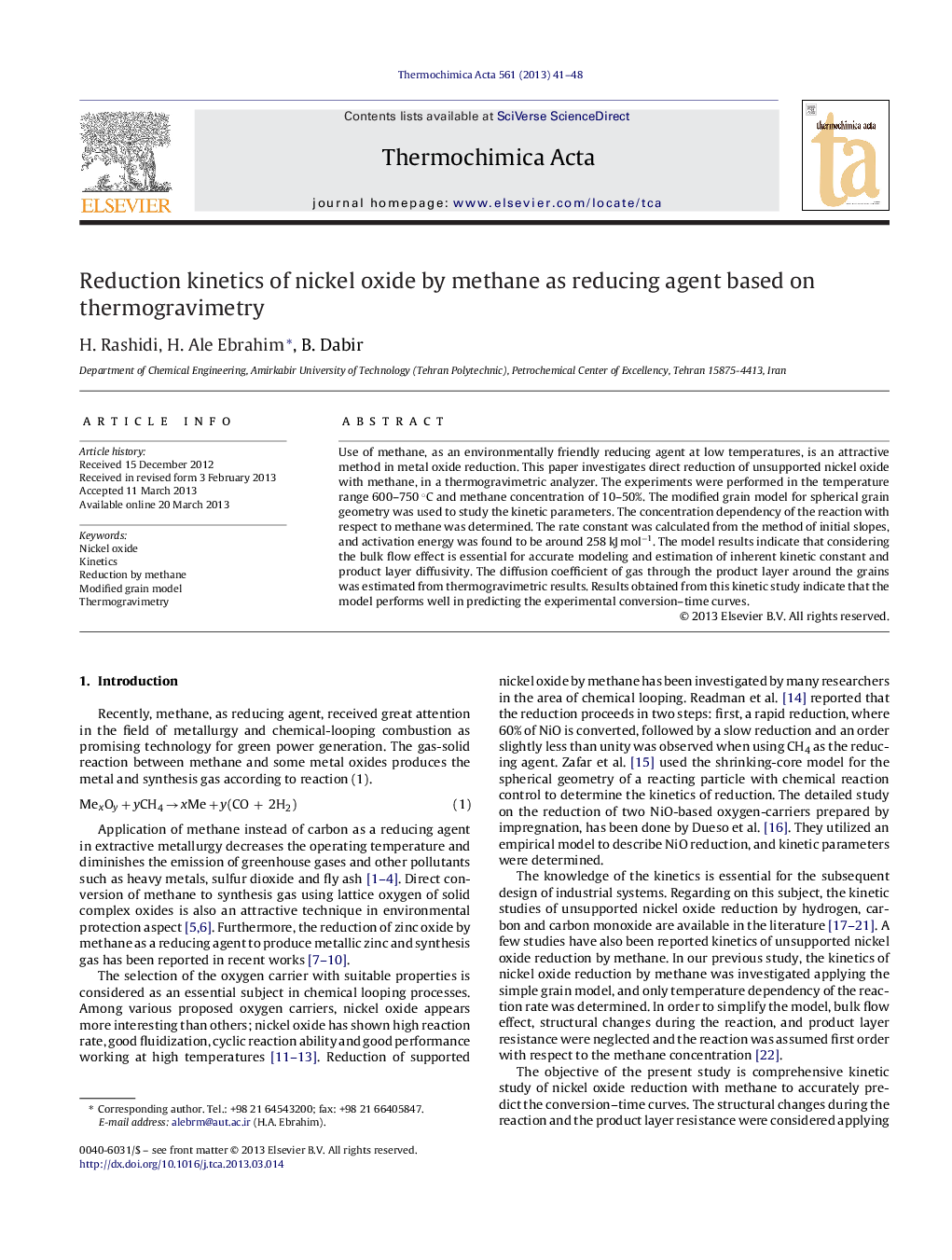| کد مقاله | کد نشریه | سال انتشار | مقاله انگلیسی | نسخه تمام متن |
|---|---|---|---|---|
| 673795 | 1459523 | 2013 | 8 صفحه PDF | دانلود رایگان |

• The reduction process was studied by thermogravimetry.
• The modified grain model for spherical grain geometry was used to study the kinetic parameters.
• The bulk flow effect as important phenomenon was considered in the model to determine the inherent kinetic parameters.
• Concentration dependency with respect to gaseous reactant was determined.
• The conversion–time curves were predicted well by the model.
Use of methane, as an environmentally friendly reducing agent at low temperatures, is an attractive method in metal oxide reduction. This paper investigates direct reduction of unsupported nickel oxide with methane, in a thermogravimetric analyzer. The experiments were performed in the temperature range 600–750 °C and methane concentration of 10–50%. The modified grain model for spherical grain geometry was used to study the kinetic parameters. The concentration dependency of the reaction with respect to methane was determined. The rate constant was calculated from the method of initial slopes, and activation energy was found to be around 258 kJ mol−1. The model results indicate that considering the bulk flow effect is essential for accurate modeling and estimation of inherent kinetic constant and product layer diffusivity. The diffusion coefficient of gas through the product layer around the grains was estimated from thermogravimetric results. Results obtained from this kinetic study indicate that the model performs well in predicting the experimental conversion–time curves.
Journal: Thermochimica Acta - Volume 561, 10 June 2013, Pages 41–48